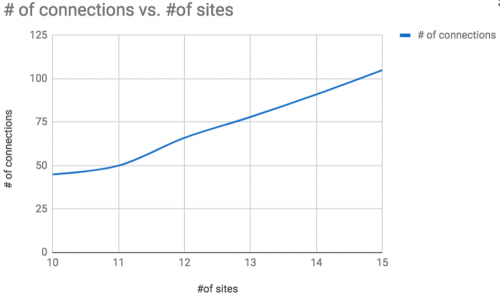Power laws and predicting the development of the web

Power laws are a mathematical concept that describe the distribution of events or quantities according to the scale-invariant relationship between the frequency of an event and its magnitude. They are commonly used in many different fields, including physics, economics, and sociology, to describe the distribution of wealth, the frequency of natural disasters, and many other phenomena.
With regards to the development of the web, power laws have been used to describe the distribution of links among websites, the popularity of websites, and the growth of online communities. The idea behind this is that the web is a complex system that exhibits many of the characteristics of a power-law distribution, including the presence of a few highly connected or popular nodes and a long tail of less connected or less popular nodes.
However, the use of power laws to predict the development of the web is not without controversy. Some experts argue that the web is not a self-contained system and is instead influenced by many external factors, such as economic, cultural, and technological trends. As a result, they argue that power laws are not appropriate to predict the development of the web and that other models, such as agent-based models or network models, may be more appropriate.
In conclusion, the appropriateness of power laws to predict the development of the web is still a matter of debate among experts. While power laws can provide valuable insights into the distribution of links and popularity of websites, they may not capture all of the complexities of the web and may not be appropriate to predict its future development.
| number of websites | total number of possible connections (n*(n-1)/2) |
|---|---|
| 10 | 45 |
| 11 | 50 |
| 12 | 66 |
| 13 | 78 |
| 14 | 91 |
| 15 | 105 |
I don't think we can say this relationship reflects a powerlaw relationship:
Standards[edit]
These standards are used from the IB Computer Science Subject Guide[2]
- Discuss whether power laws are appropriate to predict the development of the web.
References[edit]
- ↑ http://www.flaticon.com/
- ↑ IB Diploma Programme Computer science guide (first examinations 2014). Cardiff, Wales, United Kingdom: International Baccalaureate Organization. January 2012.
